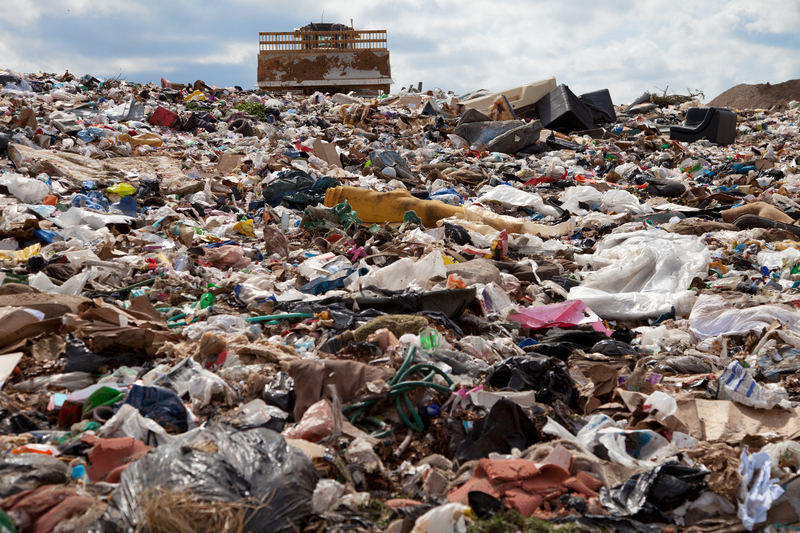Council Rubbish Collection: A Comprehensive Guide

Managing household waste is an essential responsibility for every community. Council rubbish collection services play a pivotal role in maintaining cleanliness and hygiene in urban and rural areas alike. Understanding how these services operate, the schedules they follow, and the types of waste accepted can help residents contribute effectively to waste management efforts.
The primary goal of council rubbish collection is to ensure that waste is collected efficiently and disposed of in an environmentally friendly manner. Different councils may have varying policies and schedules, so it's important for residents to familiarize themselves with their local guidelines. This not only helps in proper waste segregation but also in minimizing the environmental impact.
 One of the first steps in efficient rubbish collection is proper waste segregation. Most councils require residents to separate recyclable materials, organic waste, and general rubbish. This separation aids in the recycling process and reduces the burden on landfills. Understanding what can be recycled and how to prepare materials for collection is crucial for the success of these programs.
One of the first steps in efficient rubbish collection is proper waste segregation. Most councils require residents to separate recyclable materials, organic waste, and general rubbish. This separation aids in the recycling process and reduces the burden on landfills. Understanding what can be recycled and how to prepare materials for collection is crucial for the success of these programs.
In addition to regular waste collection, councils often provide special services for bulky items and hazardous waste. These services are typically scheduled separately and may require residents to book a collection date in advance. Proper disposal of bulky items like furniture and appliances, as well as hazardous materials such as batteries and chemicals, ensures that these items do not harm the environment or public health.
Many councils have introduced reward programs to encourage residents to reduce their waste output. These programs may include incentives for recycling, composting, and reducing the use of single-use plastics. By participating in these initiatives, residents can contribute to a more sustainable community and often benefit from reduced waste collection fees.
 Technology is increasingly being integrated into council rubbish collection services. Smart bins equipped with sensors can notify waste collection teams when they are full, optimizing collection routes and reducing unnecessary trips. Additionally, online platforms and mobile apps allow residents to track their waste collection schedules, report issues, and access resources for better waste management.
Technology is increasingly being integrated into council rubbish collection services. Smart bins equipped with sensors can notify waste collection teams when they are full, optimizing collection routes and reducing unnecessary trips. Additionally, online platforms and mobile apps allow residents to track their waste collection schedules, report issues, and access resources for better waste management.
Community involvement is vital for the success of council rubbish collection programs. Local initiatives such as neighborhood clean-ups, recycling drives, and educational workshops can foster a culture of responsible waste management. Engaging residents through these activities not only improves the cleanliness of the community but also raises awareness about the importance of reducing waste.
 Proper waste management is closely linked to environmental conservation. Effective council rubbish collection systems help in reducing greenhouse gas emissions by minimizing landfill usage and promoting recycling. By adequately managing waste, councils can contribute significantly to the fight against climate change and the preservation of natural resources.
Proper waste management is closely linked to environmental conservation. Effective council rubbish collection systems help in reducing greenhouse gas emissions by minimizing landfill usage and promoting recycling. By adequately managing waste, councils can contribute significantly to the fight against climate change and the preservation of natural resources.
It's also important for residents to stay informed about any changes in rubbish collection policies or schedules. Councils may update their services based on budget changes, environmental regulations, or community feedback. Staying informed ensures that residents can adapt to these changes and continue to participate actively in waste management efforts.
 In conclusion, council rubbish collection services are a cornerstone of effective waste management in communities. By understanding the processes, participating in recycling efforts, and staying informed about local policies, residents can contribute to a cleaner and more sustainable environment. Embracing these practices not only benefits the community but also plays a crucial role in protecting our planet for future generations.
In conclusion, council rubbish collection services are a cornerstone of effective waste management in communities. By understanding the processes, participating in recycling efforts, and staying informed about local policies, residents can contribute to a cleaner and more sustainable environment. Embracing these practices not only benefits the community but also plays a crucial role in protecting our planet for future generations.







